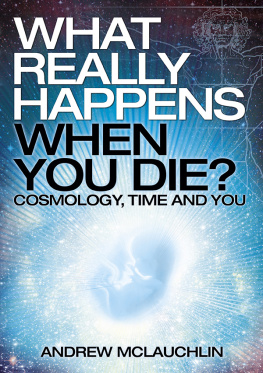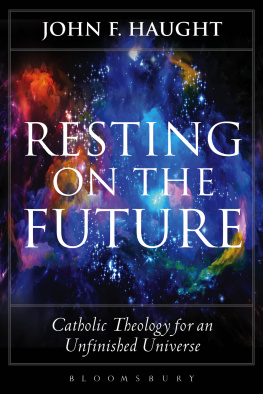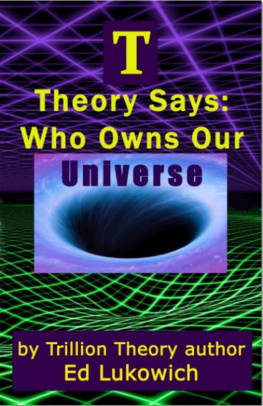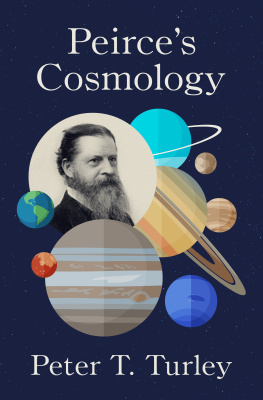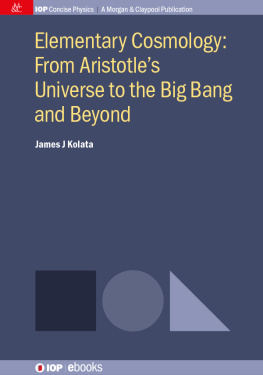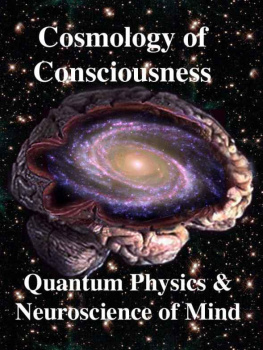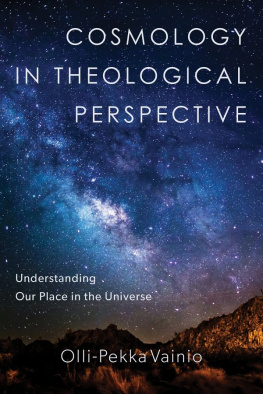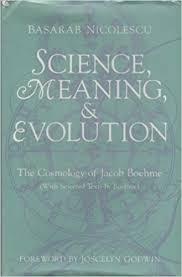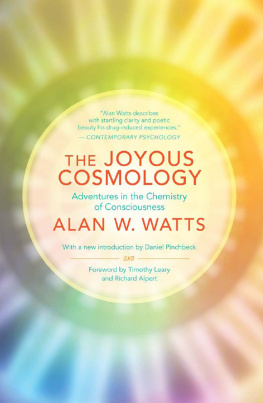The Sense of the Universe -- The Sense of the Universe
1
Additional Praise for
The Sense of the Universe
The Sense of the Universe represents the project on phenomenological cosmology. His main stance is that the universe as a whole cannot be an object in the natural attitude of consciousness and is comprehended as a saturated phenomenon, a concept developed by contemporary French philosopher Jean-Luc Marion. This concept allows one to respond to the question on the sense and origin of the universe not in terms of an objective foundation that could be discovered by theoretical thinking but rather to treat the universe as the ultimate existential background of this thinking. Correspondingly, the universe cannot be considered anymore as a phenomenon without human beings articulating it. Such an approach to cosmology opens a new avenue to its dialogue with theology by relating the articulation of the world with experience of the Divine in the one and same human subject.
Ruslan Loshakov
Lule University of Technology
The Sense of the Universe by Alexei Nesteruk is a deep and well-structured book about science and theology that focuses in particular on a study on the philosophical foundations of cosmology. Nesteruks central tenet is that a phenomenological analysis of the foundations of physics reveals that in doing physics we also reveal the nature of our humanity. He sets out, in convincing detail, that such analysis of cosmology in particular can reveal the hidden psychological and spiritual aspirations that guide the study of the world. Nesteruk interprets ideas concerning the universe as a whole, and its origin, existentially as reflecting the basic anxieties of human existence in the vast cosmos. In this view, the study of cosmological is interpreted as an inevitable part of the teleology pertaining to all human acts. The universe as a whole, which is the inexhaustible context of the living experience, is then seen as the infinite created unknowable which, from an epistemological point of view, is similar to that of the Divine. Nesteruk unfolds, through the analysis of ideas of the universe, a hidden theological commitment in cosmology related to the metaphysical and theological mystery of the human existence.
Chris Dewdney
University of Portsmouth
The Sense of the Universe
Philosophical Explication of Theological Commitment in Modern Cosmology
Alexei V. Nesteruk
Fortress Press
Minneapolis
THE SENSE OF THE UNIVERSE
Philosophical Explication of Theological Commitment in Modern Cosmology
Copyright 2015 Fortress Press. All rights reserved. Except for brief quotations in critical articles or reviews, no part of this book may be reproduced in any manner without prior written permission from the publisher. Visit http://www.augsburgfortress.org/copyrights/ or write to Permissions, Augsburg Fortress, Box 1209, Minneapolis, MN 55440.
Cover image: Joe Reinke
Cover design: Thinkstock: Spiral Galaxy NGC 5584 / Stocktrek
Library of Congress Cataloging-in-Publication Data
Print ISBN: 978-1-4514-7038-3
eBook ISBN: 978-1-4514-9417-4
The paper used in this publication meets the minimum requirements of American National Standard for Information Sciences Permanence of Paper for Printed Library Materials, ANSI Z329.48-1984.
Manufactured in the U.S.A.
This book was produced using PressBooks.com.
Contents
Preface
This book, in a way, represents a further extension of some ideas on the dialogue between science and theology that were formulated in my previous books Light from the East and The Universe as Communion. My position on the general approach to the dialogue between theology and science has experienced a considerable transformation toward an understanding that theology and science cannot enter this dialogue on the same footing, that is, on equal terms. Orthodox Christianity treats theology as experience, related specifically to communion of human persons with God while being in the physical universe. In fact, life is communion, so that all other activities (including a scientific one) originate in this communion. In this sense, to establish the dialogue between theology and science means to appropriate science theologically, that is, experientially or existentially. The symmetry between theology and science is not sustainable simply because existence, that is, life as a center of disclosure and manifestation, precedes its explication through science. This asymmetry reveals itself in the dialogue as a certain (a priori) theological commitment. Theological commitment means an intentional approach to science through the eyes of (existential) faith. Being a commitment, it entails a method: namely a phenomenological explication of those premises in the coherence between human rationality and the rationality of the cosmos that make cosmology possible at all. The aim and the final result of such an analysis is the creation of a solid ground for understanding the sense of cosmologys dialogue with theology. This book deals with three principal aspects of explication of the theological commitment in cosmology: 1) the reinstatement of personhood to its central place in the dialogue between theology and cosmology as being a center of disclosure and manifestation in both theology and cosmology; 2) the elucidation of the sense of retaining transcendence while conducting research within the rubrics of intentional immanence, which ultimately elucidates the sense of humanity as not being circumscribed by the necessities of the universe, but carrying in itself the Divine image; and thus 3) the elucidation of cosmology as activity explicating the history of salvation and thus contributing to faith in God.
There are many colleagues and friends who through discussions and indirect support contributed toward the writing of this book. Among many, I would like to express my feelings of gratitude to my sons Dmitri and Mark, as well as my wife Zhanna, for existential support and encouragement. My sister Nina was very helpful in obtaining necessary Russian books while I was outside Russia: my deep gratitude to her. George Horton deserves special thanks as a first reader of the book, contributing a lot to its style and ultimate shape. Among others, my thanks for fruitful conversations and discussions go to Christopher Dewdney, David Matravers, Roy Maartens, David Bacon, David Coule, Joel Matthews, John Bowker, Niels Gregersen, Adrian Lemeni, Michael McCabe, Mogens Wegener, Alfred Osborne, Argyrios Nicolaides, Rev. Christopher Knight, Andrei Pavlenko, Grigory Benevich, Grigory Goutner, Dmitri Biryukov, Marina Vasina, Aleksandr Shevchenko, Alexandr Soldatov, Natalia Pecherskaya, Tatiana Litvin, Sister Teresa Obolevich, Oksana Kuropatkina, Stoyan Tanev, Ruslan Loshakov, Andrei Grib, Peter Coleman, Antonio Samons, Rev. Konstantin Litvinenko, Rev. Kyrill Kopeikin, Rev. Brian Macdonald-Milne, Brother Christopher Mark (CSWG), Florin Caragiu, Andreas Marcou and Alex Ali. I am particularly grateful to Metropolitan John of Pergamon (Zizioulas) for appreciation of my contribution to the dialogue between Orthodox Christianity and science, as well as for encouragement. The department of mathematics of the University of Portsmouth was very helpful in providing me with the conditions for conducting research and writing: my special thanks to its head Andrew Osbaldestin for comprehension and support. I always used the opportunity to communicate general ideas developed in this book through the courses in theoretical and mathematical physics, as well as history and philosophy of mathematics which I taught an the University of Portsmouth. In this regard I would like to thank all my students who were patient and perceptive in grasping complicated ideas. St. Andrews Biblical and Theological Institute in Moscow was also very helpful for providing me an opportunity to approve ideas developed in this book during its summer institutes in 2005-2014. I am grateful to Alexei Bodrov and Mikhail Tolstoluzhenko for inviting me to collaborate and contribute to various scientific events. Since the project of this book dates back many years, the research and publication of its ideas were indirectly supported by the John Templeton Foundation (JTF) through its grants (#1573 and #11921) as well as through numerous international projects where the ideas of the book were approved. I would like to express my sincere gratitude to the Foundation for this support. Some papers related to the content of this book have been published with the support of JTF through the Copernicus Centre in Krakow. The opinions expressed in those publications as well as in this book are those of the author and do not reflect the views of the JTF.


